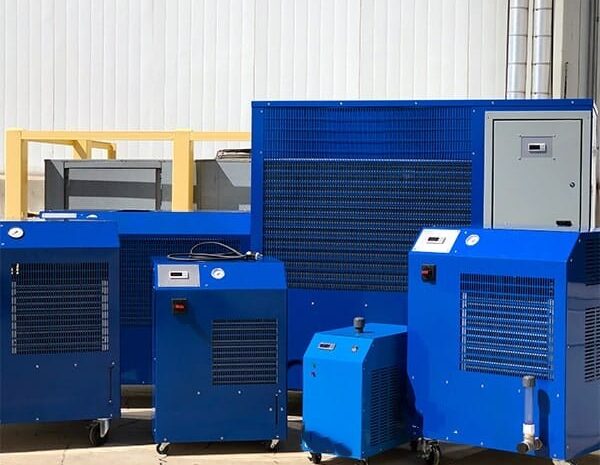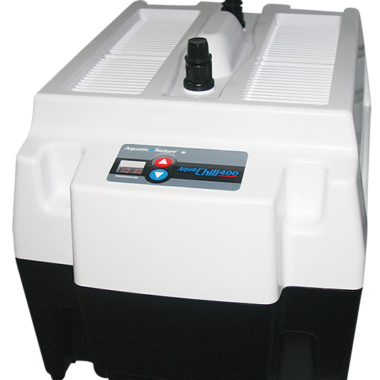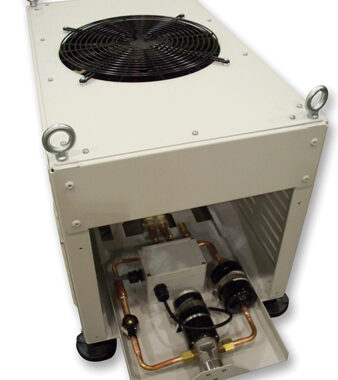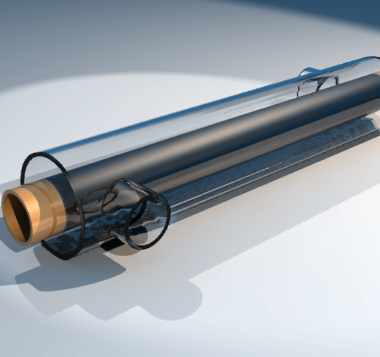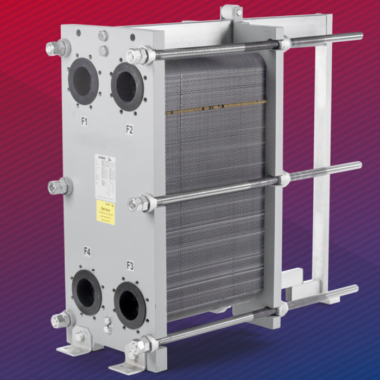Ultra-Low Temp Chiller
Introduction
Ultra-low temperature chillers are the ultimate solution. These chillers are specially designed to achieve and maintain temperatures ranging from -40°C to -120°C, ensuring precise and stable cooling conditions for critical applications. Unlike conventional chillers that operate within moderate temperature ranges, ultra-low temp chillers utilize advanced refrigeration technologies, including multi-stage compression, cascade cooling systems, and special refrigerants, to reach sub-zero temperatures efficiently. The demand for ultra-low temp chillers has significantly increased in sectors such as pharmaceuticals, biotechnology, aerospace, semiconductor manufacturing, and cryogenic research. In these industries, even the slightest variation in temperature can compromise product integrity, experimental accuracy, or industrial process stability. These chillers provide a reliable and consistent cooling environment, ensuring that sensitive materials, high-tech components, and biological samples are preserved under optimal conditions. With the rise of advanced medical research, semiconductor miniaturization, and space exploration, the need for ultra-low temperature solutions has become more crucial than ever. Whether it is for vaccine storage, chemical reactions, quantum computing, or aerospace testing, these chillers serve as a backbone for technological advancements. Their integration of energy-efficient components, smart automation, and high-precision temperature control systems makes them an indispensable tool in modern industrial and scientific applications.
Key Features of Ultra-Low Temp Chillers
Extreme Cooling Capabilities
Ultra-low temp chillers are specifically engineered to deliver and sustain temperatures as low as -120°C, making them suitable for cryogenic and sub-zero applications. Unlike standard industrial chillers that operate in the +5°C to -40°C range, these chillers provide enhanced cooling power for industries that require deep freezing, precision cooling, and cryopreservation. The advanced cooling design ensures uniform temperature distribution across the system, preventing localized temperature variations.
Multi-Stage Refrigeration System
Ultra-low temperature chillers often use cascade refrigeration or a two-stage compression cycle to achieve extreme cooling. In a cascade system, two or more refrigeration circuits work in combination to gradually lower the temperature to the required level. These chillers utilize special refrigerants, including helium, ethane, or ammonia-based blends, that can function effectively at ultra-low temperatures. The multi-stage cooling process improves efficiency and prevents excessive strain on a single refrigeration circuit, leading to longer equipment life and stable performance.
High Precision Temperature Control
Ultra-low temp chillers incorporate advanced digital controllers, PID (Proportional-Integral-Derivative) technology, and PLC-based monitoring to ensure accurate temperature regulation. These control systems continuously monitor and adjust cooling parameters to maintain a stable temperature, reducing fluctuations that could compromise sensitive applications. The ability to program precise temperature setpoints enhances efficiency in research laboratories, industrial processing, and medical storage applications where even a small temperature deviation can impact results.
Energy-Efficient Operation
Energy efficiency is a critical aspect of ultra-low temperature chillers due to their continuous operation and high cooling demands. These chillers are designed with high-efficiency compressors, optimized refrigeration cycles, and advanced insulation materials that minimize energy consumption. Features such as heat recovery systems, variable-speed compressors, and eco-friendly refrigerants contribute to reducing power usage while maintaining peak cooling performance. The incorporation of energy-saving technologies ensures lower operational costs and a reduced carbon footprint, making these chillers a more sustainable solution for industries requiring ultra-low temperatures.
Durability and Reliability
Ultra-low temp chillers are built using high-quality, corrosion-resistant materials such as stainless steel and reinforced aluminum to withstand extreme temperature variations. Their robust construction ensures that critical components, such as compressors, evaporators, and condensers, operate reliably under harsh conditions. Many models include self-diagnostic systems, overload protection, and automated defrost cycles, preventing ice buildup and extending the equipment’s lifespan. The inclusion of redundant cooling systems in some models further enhances reliability by ensuring continued operation in the event of a component failure.
Advanced Safety Mechanisms
Due to the extreme conditions in which ultra-low temp chillers operate, they are equipped with multiple safety features to prevent malfunctions and ensure user safety. These safety mechanisms include low-temperature alarms, refrigerant leak detection sensors, overpressure protection, and automated shutdown systems. Real-time monitoring and remote alerts allow operators to quickly identify and address potential issues before they lead to equipment failure. This level of safety ensures that industries handling sensitive products, such as pharmaceuticals and biotech firms, can maintain strict regulatory compliance while protecting valuable materials.
Applications of Ultra-Low Temp Chillers
Pharmaceutical & Biotechnology Industry
Ultra-low temp chillers play a crucial role in pharmaceutical and biotechnology industries, where precise temperature control is necessary for vaccine storage, biological sample freezing, and cryopreservation. Many pharmaceutical products, especially mRNA-based vaccines and gene therapy treatments, require storage at temperatures as low as -80°C to maintain their stability and efficacy. Research laboratories also use these chillers to preserve cell cultures, enzymes, and proteins, ensuring that biological specimens remain viable for extended periods.
Semiconductor & Electronics Cooling
In semiconductor manufacturing, precise cooling is essential to prevent overheating and thermal stress in microelectronics and circuit boards. Ultra-low temp chillers help maintain optimal operating conditions during wafer processing, chip testing, and high-precision laser applications. The ability to achieve and sustain extremely low temperatures is also beneficial for quantum computing and superconductivity research, where controlled cooling is required to enhance the performance of quantum processors.
Aerospace & Defense
The aerospace and defense industries rely on ultra-low temp chillers for cryogenic testing of materials, fuel cooling, and space simulation environments. Aircraft components, rocket fuels, and aerospace materials often need to be tested under extreme temperature conditions to simulate outer space environments or high-altitude flight conditions. These chillers also support research in advanced propulsion systems and thermal management solutions for military and space applications.
Chemical & Petrochemical Industry
Ultra-low temperature chillers are widely used in the chemical processing and petrochemical sectors to support low-temperature chemical reactions, gas liquefaction, and solvent recovery processes. Many industrial chemicals and petrochemical products require controlled sub-zero conditions to prevent unwanted reactions and ensure product stability. These chillers also facilitate the safe storage and handling of flammable, volatile, and cryogenic substances.
Medical & Healthcare Facilities
In the medical and healthcare sectors, ultra-low temp chillers are used for MRI machine cooling, blood bank storage, and organ preservation. These chillers ensure that biological samples, including stem cells, plasma, and tissues, are stored at ultra-low temperatures to maintain their viability. Additionally, hospitals and research institutions use these chillers for temperature-sensitive pharmaceuticals, genetic research, and clinical trials.
Food & Beverage Industry
Ultra-low temperature chillers are essential for flash freezing and deep freezing applications in the food and beverage industry. These chillers help in preserving perishable food items, enhancing shelf life, and maintaining product quality by rapidly freezing food at ultra-low temperatures. They are widely used in seafood processing, meat freezing, and cryogenic food preservation to lock in freshness and prevent bacterial growth.
Advantages of Ultra-Low Temp Chillers
Ultra-low temp chillers offer superior cooling performance by achieving and maintaining extreme low temperatures with high accuracy and stability. They enhance energy efficiency by utilizing advanced multi-stage refrigeration systems and low-temperature refrigerants, reducing overall power consumption while delivering maximum cooling output. These chillers are designed for durability and reliability, ensuring continuous operation in demanding industrial environments. Their precise temperature control and automation capabilities make them ideal for critical applications in pharmaceuticals, aerospace, semiconductors, and medical research. Additionally, they are engineered with safety mechanisms such as temperature alarms, system diagnostics, and refrigerant leak detection, ensuring safe operation at all times.


